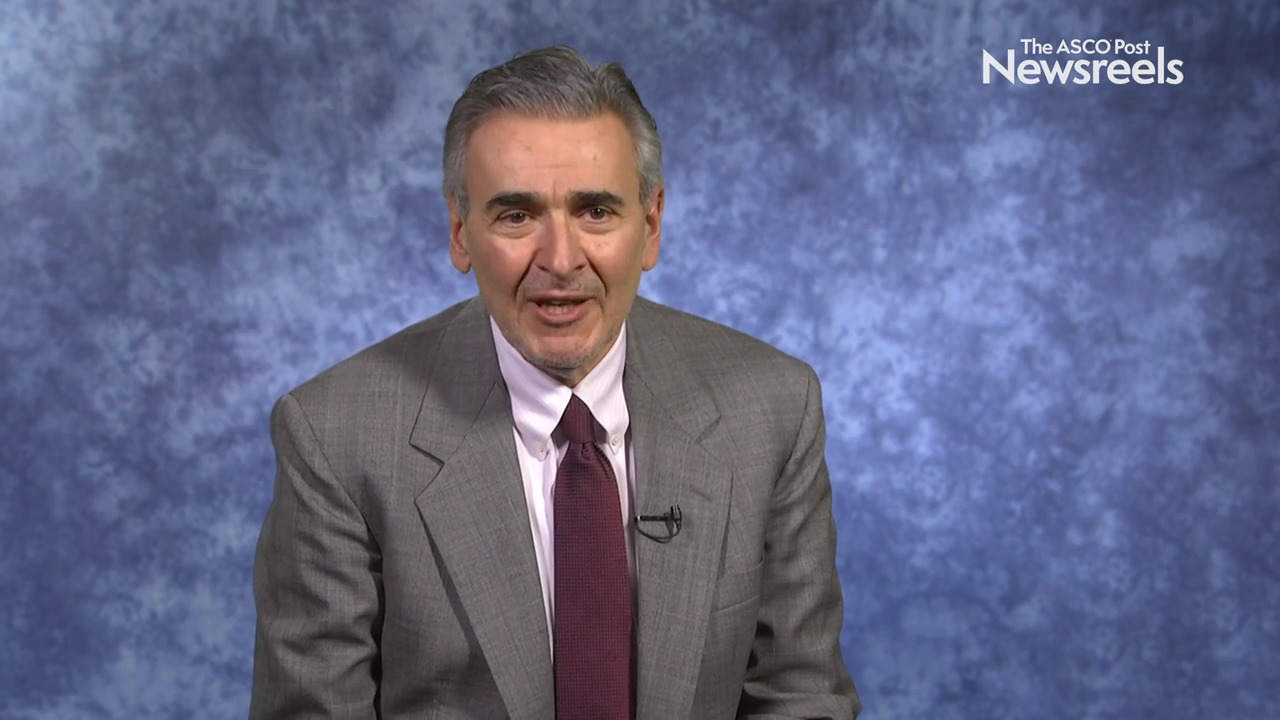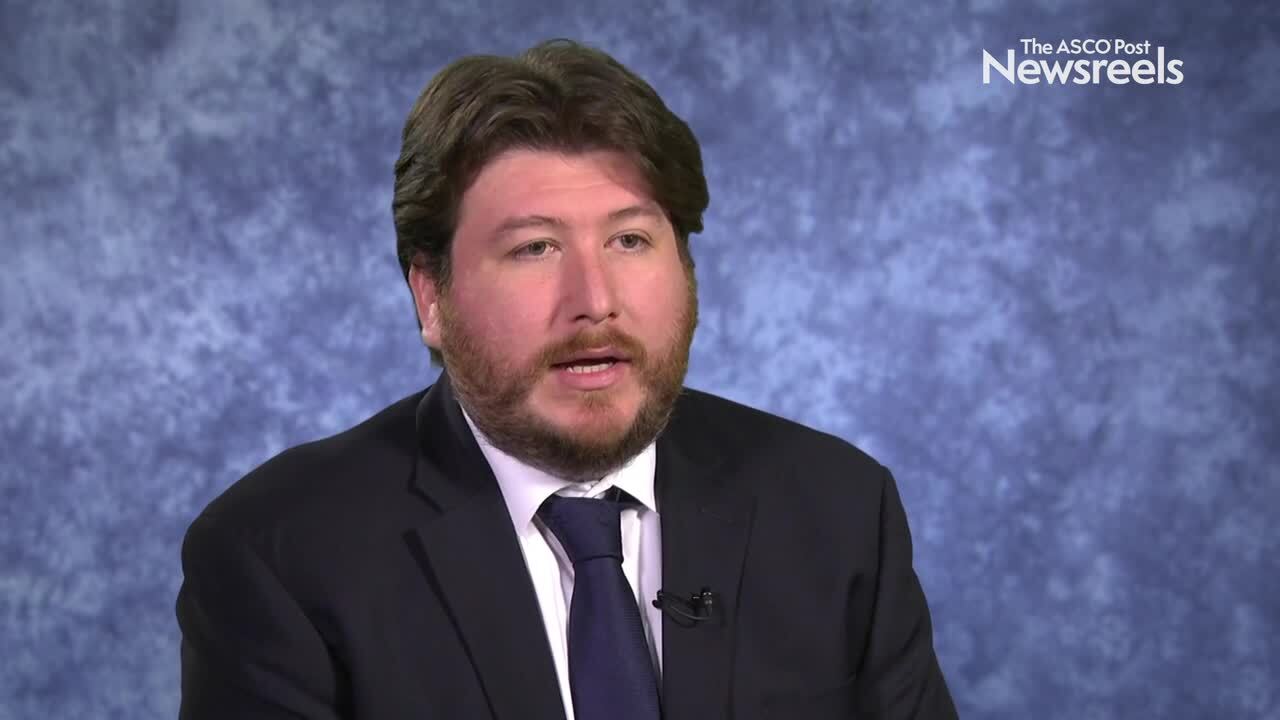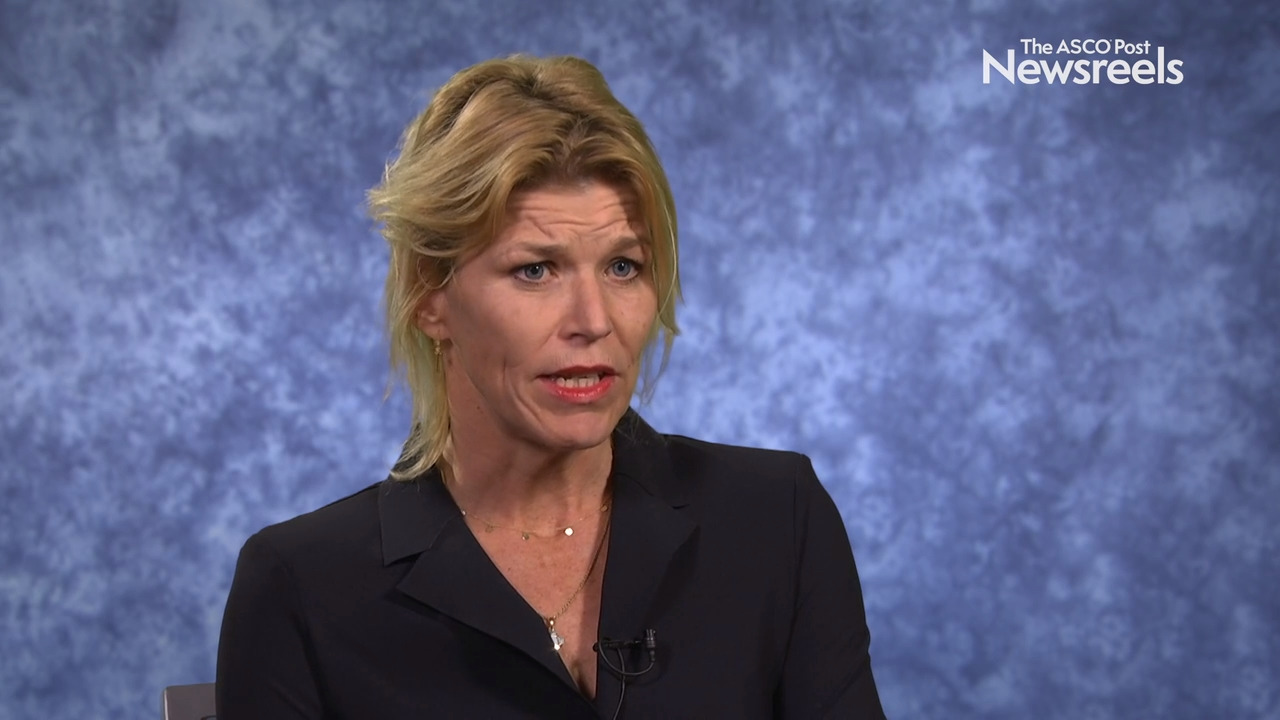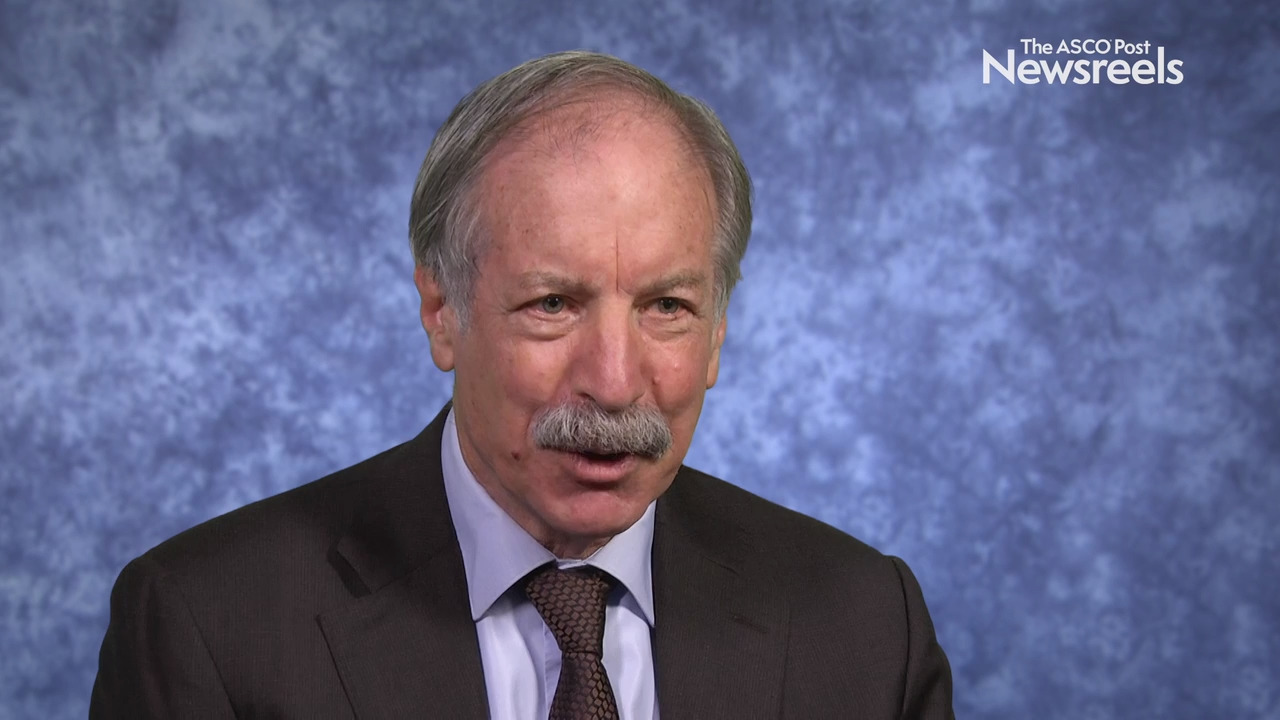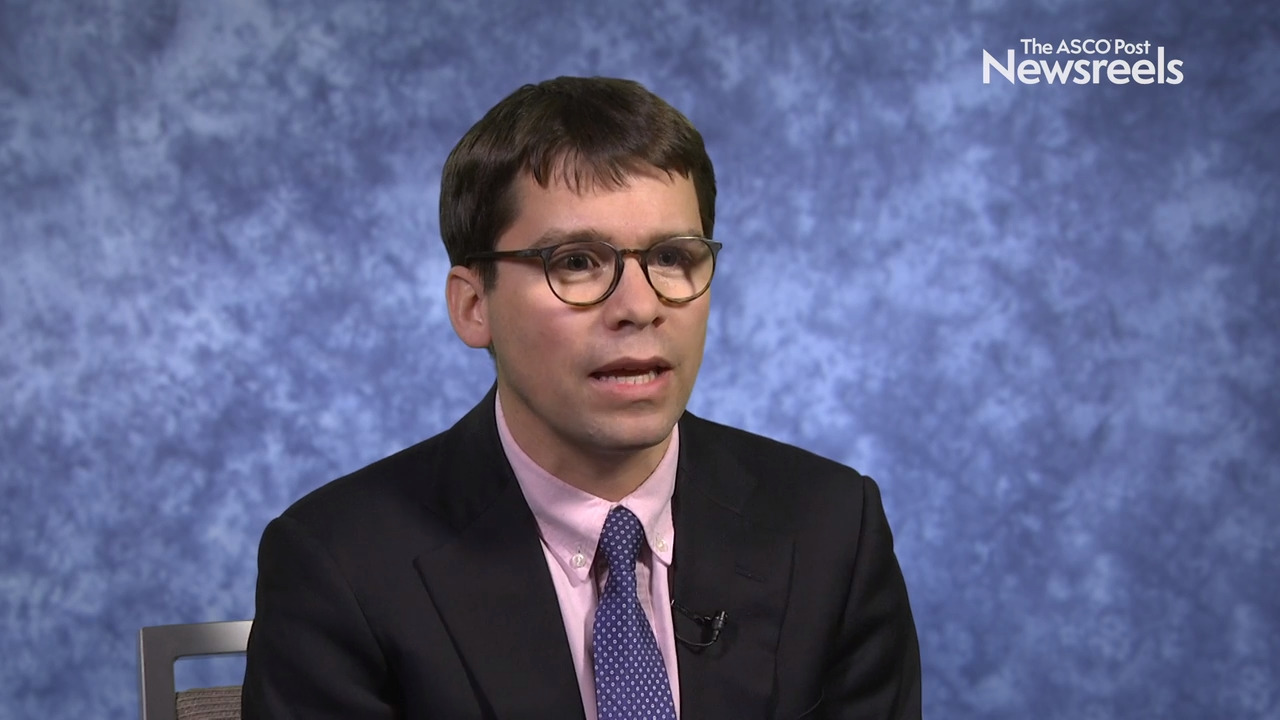Priyanka Sharma, MD, on Postoperative Treatment of Primary Breast Cancer: POTENT Trial
2019 San Antonio Breast Cancer Symposium
Priyanka Sharma, MD, of the University of Kansas Medical Center, reviews new phase III data on adding oral fluoropyrimidine to adjuvant endocrine therapy, the current standard of care, in the setting of hormone receptor–positive, HER2-negative primary breast cancer (Abstract GS1-09).
Joseph Sparano, MD, of the Montefiore Medical Center, discusses three challenges:
- How can gene-expression profiles and other diagnostic tests be used to guide the use of adjuvant systemic therapy?
- Is it time to reappraise active surveillance?
- Are there diagnostic and therapeutic strategies that can identify tumors at highest risk of metastasis, and novel therapies that can block the spread of disease?
Gerardo Antonio Umanzor Funez, MD, of Liga Contra El Cáncer, discusses phase III findings on intravenous (IV) paclitaxel and oral paclitaxel plus encequidar (a novel P-gp inhibitor), the first orally administered taxane regimen shown to be superior to the IV formulation in terms of response and survival with less neuropathy (Abstract GS6-01).
Marie-Jeanne T.F.D. Vrancken Peeters, MD, PhD, of the Netherlands Cancer Institute, discusses an interim study analysis showing that ultrasound-guided core biopsies of the breast in patients with excellent response on MRI after neoadjuvant systemic therapy may not be accurate enough to safely select patients with pathologic complete response for omission of surgery (Abstract GS5-06).
Jack Cuzick, PhD, of Queen Mary University of London, discusses the substantially greater benefits of anastrozole as compared with tamoxifen in terms of preventing breast cancer, with no increase in fractures or other reported serious side effects (Abstract GS4-04).
Joerg Heil, MD, PhD, of the University Hospital Heidelberg, discusses findings on how accurately this technique can diagnose residual disease and pathologic complete response after neoadjuvant chemotherapy in patients with breast cancer. These data may help tailor, de-escalate, and potentially avoid unnecessary surgeries (Abstract GS5-03).
